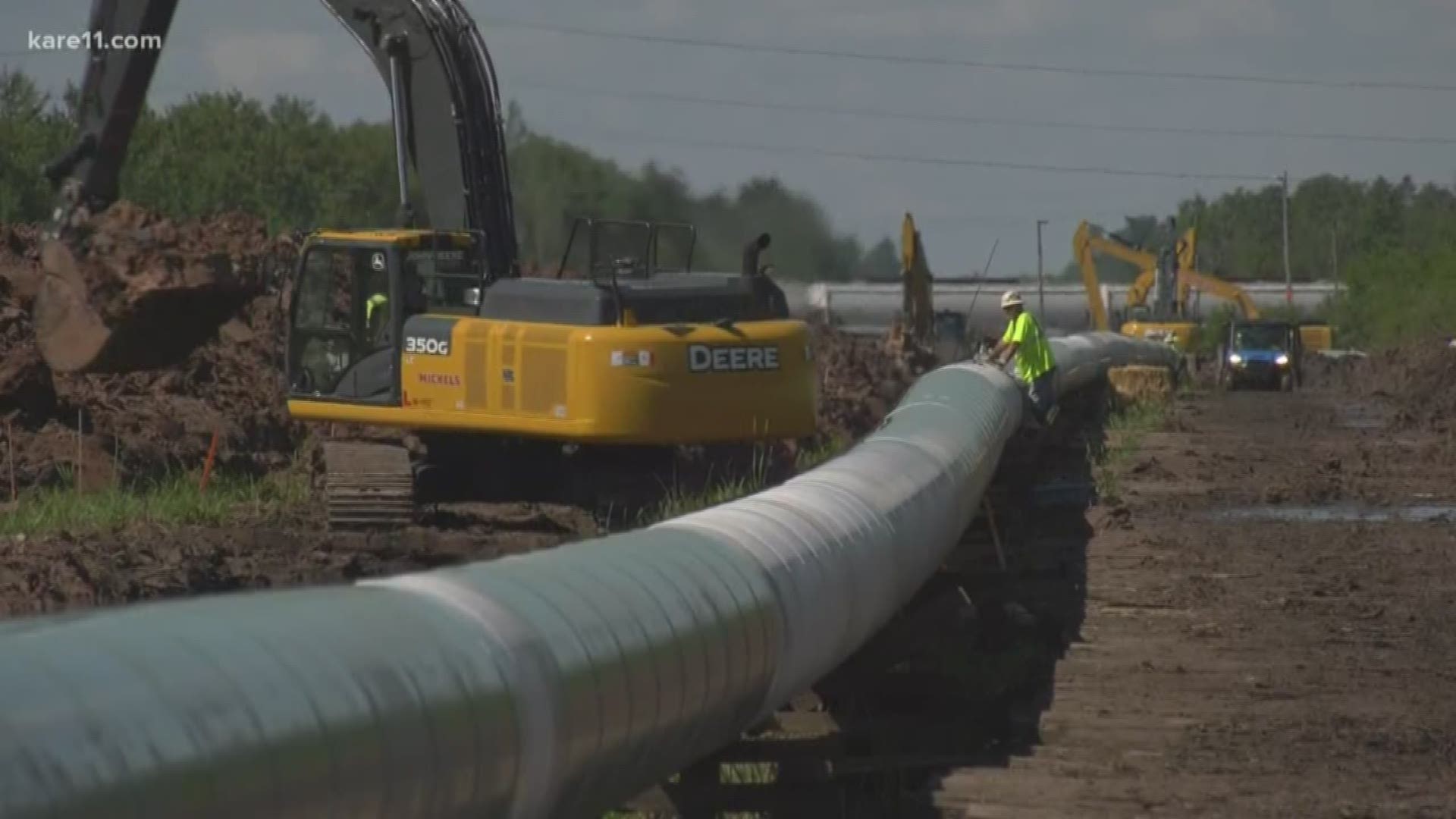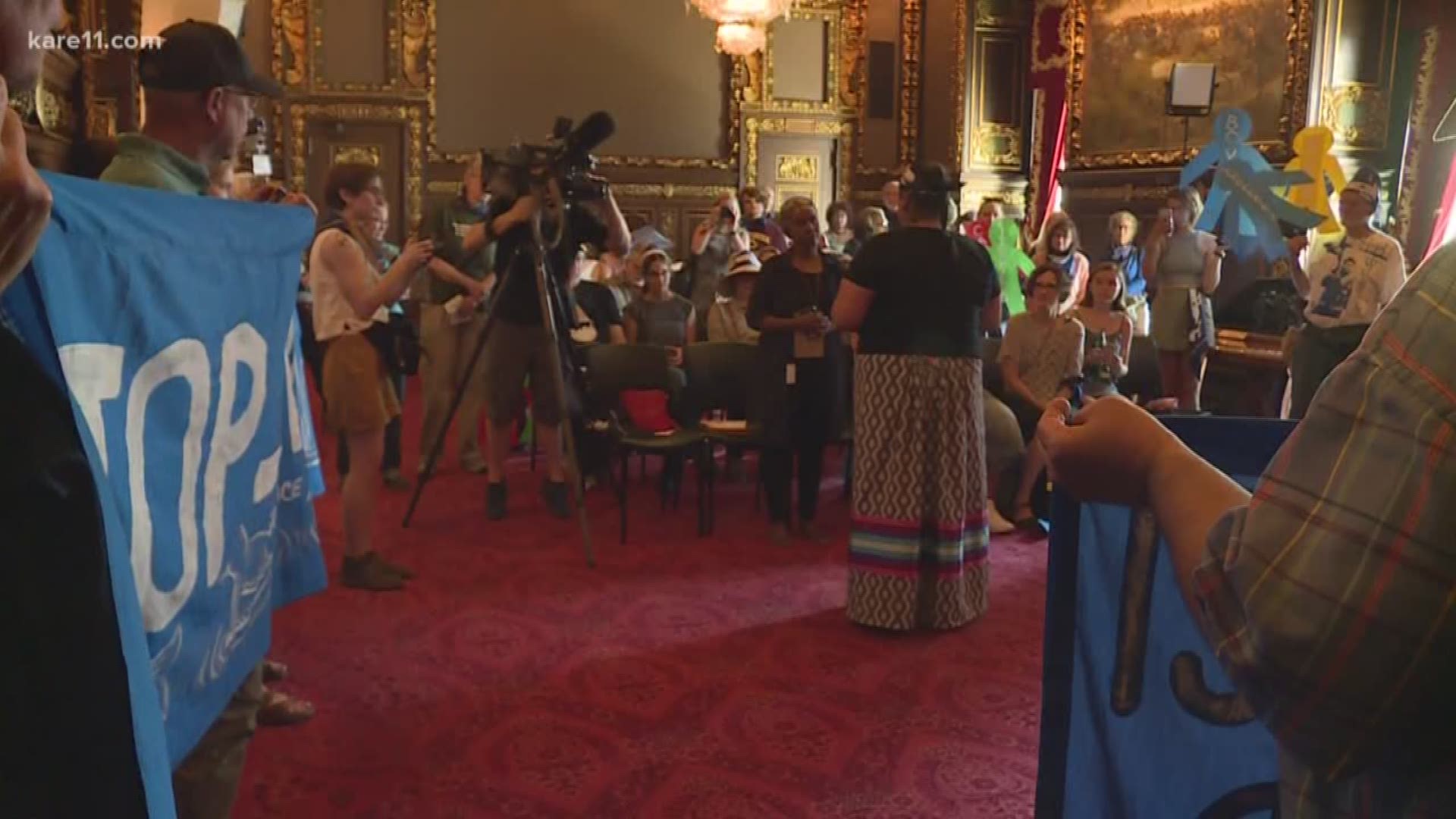ST PAUL, Minn. — The Minnesota Public Utilities Commission voted Tuesday to seek a revised environmental impact statement on the proposed Enbridge Line 3 oil pipeline replacement project in northern Minnesota.
The PUC's action, taken after a brief public meeting at the Senate Office Building, agreed to comply with an appeals court ruling that said the original EIS didn't adequately address potential impacts of possible leaks and spills on the Lake Superior watershed.
The Dept. of Commerce was given 60 days to study that narrow issue and add it to the EIS that was previously given the okay by the PUC.
"We're talking about a tenth of the world's fresh water right in our own backyard in Minnesota. We have a job to protect it," Jaci Christenson of MN 350, one of the groups working to stop the project, told KARE.
"We need to stop relying on fossil fuels and tar sands, and the time is now."
The $3.6 billion project will stretch from the North Dakota border to the Wisconsin border, traversing parts of northern and north-central Minnesota. Supporters have argued that a new pipeline carries fewer long-term environmental hazards than shipping oil by truck or rail.
"You’re talking about the most deteriorated pipeline in the state, the existing Line 3, that also crosses two tribal reservations, one of which decided they no longer wanted to host that pipeline," Kevin Pranis of the LIUNA construction laborers union told KARE.
"The new project would relocate the line away from the Leech Lake reservation, and replace it with a modern, far safer pipeline."
The existing Line 3 pipeline travels across several Native America communities, while the proposed replacement avoids tribal lands for the most part. The new route, however, would cross areas of the state where Minnesota and Wisconsin tribes retain treaty rights to hunt, fish and harvest wild rice.
"They can build a new pipeline if they want to, but it needs to go in their existing trenches, not new ones," said Frank Bibeau, an attorney who represents the 1855 Treaty group and appeared at the PUC meeting on behalf of the White Earth Ojibwe.
"You can talk about pipeline safety all you want, but the people down here in this building making this decision aren't from up north."
Enbridge considers the watershed study as only a temporary delay, and the company expressed confidence the project will eventually win all of the state and federal permits needed and survive remaining legal challenges.
"The EIS, completed previously by the DOC, the Department of Natural Resources and the Pollution Control Agency following extensive review and significant stakeholder input, is already a thorough 13,500-page environmental study of the Line 3 Replacement Project," read the company's prepared news release.
"After four years of regulatory and permitting review, the replacement of Enbridge’s Line 3 is the most studied pipeline project in Minnesota history. It is a $2.6 billion private investment in the state’s critical energy infrastructure."
RELATED: Pipeline opponents press Governor


